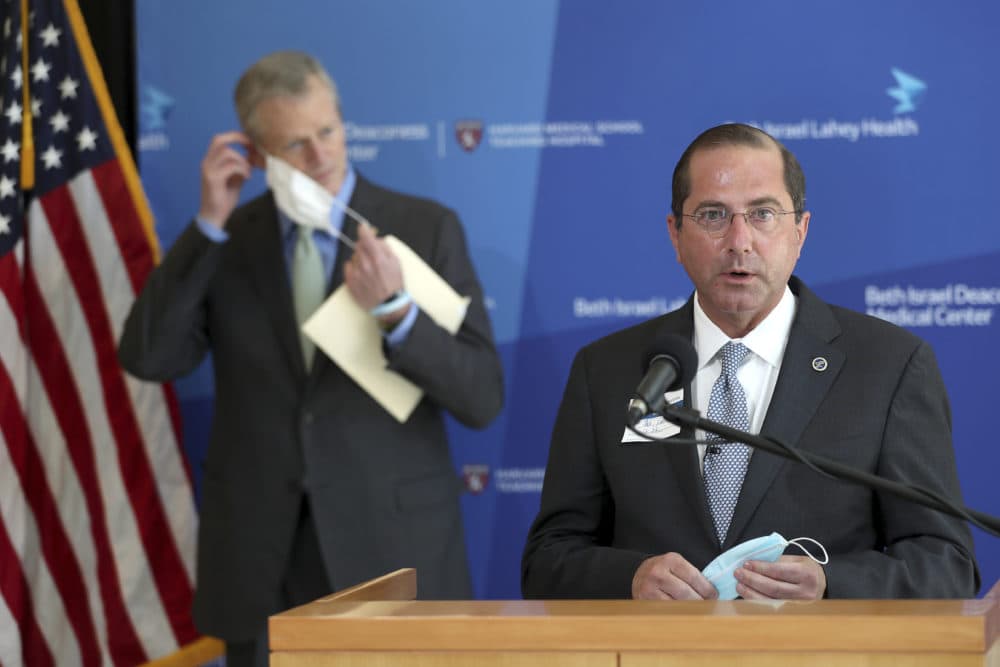Advertisement
HHS Secretary Azar Joins Baker On Tour Of Beth Israel Deaconess Medical Center

U.S. Health and Human Services Secretary Alex Azar joined Gov. Charlie Baker on a visit to Boston's Beth Israel Deaconess Medical Center on Friday to see how the state is responding to the coronavirus crisis.
Azar toured the hospital's COVID-19 test kit assembly areas and visited the primary care practice to hear about work being done to care for patients during the pandemic as part of President Donald Trump's initiative to open the country for business.
Azar expressed concern about a dramatic drop in the number of noncritical procedures being done and a steep drop in the number of primary care visits during the pandemic and the impact that could have on Americans' health.
The number of colonoscopies, mammograms and joint replacements has plummeted.
"Referrals here at Beth Israel for breast cancer and blood cancer are down over 60%. There's been a 33% decline in heart attack hospitalizations and a 58% decline in stroke hospitalizations. People aren't stopping having heart attacks and strokes. Because of the pandemic what's happening is, they're not seeking needed medical care," he said.
He also said the Trump administration's goal is to have 300 million coronavirus vaccines available by early next year, but noted that in science "there are no guarantees."
Baker said the federal government is key in developing a vaccine.
"We've been saying for a while that the feds have more tools available to them to put the foot on the accelerator with respect to treatments and vaccines than anybody else," Baker said. "Not only do they oversee the approval processes, but they also have resources that are specifically oriented to be invested there."
Baker noted that the percentage of people testing positive for the disease and the number of hospitalizations continues to decline and that the "entire health care system is out of the surge."